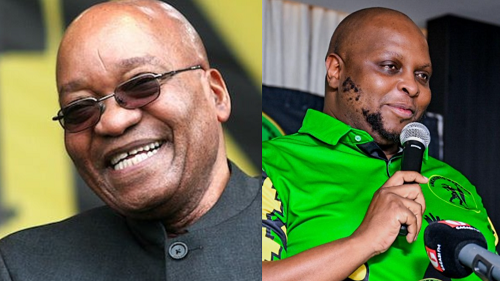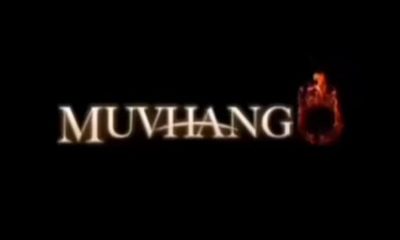News
Shivambu vs Zuma: Is the MK Party Headed for Another Major Split?

DURBAN – Tensions within the uMkhonto weSizwe Party (MKP) have reached a boiling point as former secretary-general Floyd Shivambu publicly denounces the party’s leadership under Jacob Zuma, accusing them of relying on fabricated intelligence reports to remove him and block his return to Parliament.
The internal fallout, now playing out in public, raises the question: Is the MK Party on the verge of a second major political rupture, barely six months since its formation?
He, once seen as a key figure in MKP’s leadership, was recently demoted after a controversial visit to self-proclaimed prophet and fugitive Shepherd Bushiri in Malawi. The MKP claimed this violated party rules on international engagements and aligned activity. However, Shivambu tells a different story.
“There have been bizarre and untrue intelligence reports… where it is alleged that despite raising money to remove President Zuma, I’m also accumulating supernatural powers to make people disappear,” Shivambu said during a press briefing.
The MKP, founded by Zuma in December 2023 after splitting from the ANC, has now seen multiple top-level shake-ups, with Shivambu being one of the most high-profile departures.
Shivambu says the accusations against him are based on fabricated reports claiming he was planning to secretly overthrow Zuma, using Parliament and external financial backers to do so. He claims these reports suggested he received money from “Stellenbosch” — a dog whistle in South African politics often used to imply white monopoly capital or secret elite funding.
“I object to this with contempt and say it is rubbish… There is nothing I do privately that I cannot own up to publicly,” he said.
He also claims that Zuma already has his expulsion letter drafted and stored in his briefcase, simply waiting for the right moment to eject him.
Despite the indifference, Shivambu says he has no intention of resigning and will do anything possible to stay within the MKP — a party whose constitution he helped draft. However, his remarks suggest he may be preparing an exit strategy.
“I left the ANC when it had a 63% majority. I was not expelled; I was suspended, and I still left. Why would I be perturbed by being expelled by the MK Party that does not have power?”
In a significant revelation, Shivambu said he would soon announce an interim leadership collective that will work with him to assess the formation of a new party — a move that could split the MKP’s support base.
The incident raises deeper concerns about internal democracy within the MKP. Shivambu’s removal — reportedly based on an intelligence report that members were prohibited from even discussing — reflects what some critics see as centralized, top-down control under Zuma.
In recent weeks, Zuma has emphasized party discipline and loyalty, warning that MKP is not a platform for individual ambition or personal enrichment. He also told dissenting members they are free to “start their party” — a challenge Shivambu may now be ready to accept.
If Shivambu makes good on his plan to establish a new political movement, it could further fragment the Zuma-aligned base, weaken MKP’s chances in future elections, and reinforce perceptions that the party is unstable and autocratic.
For Zuma, the risk is not just about Shivambu’s departure — it’s about the growing perception that internal dissent is punished, not debated.
With South Africa’s political environment already crowded and competitive, another breakaway may struggle to gain traction, but it could also pull away critical voices, support, and legitimacy from the MKP’s already fragile foundation. South Africans are watching keenly for the next move.












